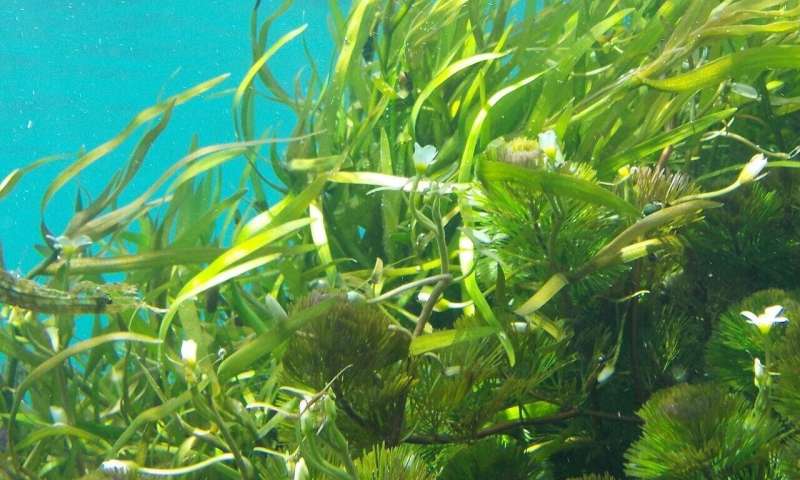Tropical fish shredding kelp forests in temperate zones

Climate change is causing previously temperate oceans to become more tropical with coral reef fish moving south, settling in and changing how things work in their new temperate neighborhood, according to a study by The University of Western Australia and international researchers.
The research, published today in Proceedings of the Royal Society B: Biological Sciences describes that as climate change is progressing, species from the tropics are shifting their distribution to cooler environments at higher latitudes around the world, settling on new temperate ecosystems in a process known as tropicalization.
Salvador Zarco Perello, from UWA's School of Biological Sciences and Oceans Institute, said the researchers investigated the expansion of the tropical herbivore rabbitfish Siganus fuscescens on kelp forest in Western Australia.
"Our research provided important evidence about how ecologically important tropical fish species moving south can impact the functioning of temperate reefs," Mr Zarco Perello said.
These fish are eating canopy-forming seaweeds, which in turn threatens the habitats of those living there first, the team says.
Additionally, by chewing up these habitat-forming seaweeds, the researchers say the poleward-journeying fish are increasing the detritus production; feeding different groups of invertebrate sea life and potentially changing the abundance of the species that recycle this biomass and, in turn, those that consume them.
Around the world, important herbivorous fish including rabbitfish, parrotfish, surgeonfish and drummers are increasing in abundance in temperate seaweed forests.
"Our research showed that the expansion and persistence of rabbitfish on WA kelp forests, following a marine heatwave in 2011, has led to a five-fold acceleration in kelp shredding year-round," Mr Zarco Perello said. "This is transforming solid kelp blades into micro particulate matter, a function usually attributed to invertebrates, such as sea urchins.
"The monitoring and understanding of the acceleration of this process due to tropicalization is critical for future management strategies, since kelp is a fundamental seaweed that provides shelter and food to multiple animal species of ecological and commercial importance."
More information: Salvador Zarco-Perello et al. Overwintering tropical herbivores accelerate detritus production on temperate reefs, Proceedings of the Royal Society B: Biological Sciences (2019). DOI: 10.1098/rspb.2019.2046
Journal information: Proceedings of the Royal Society B
Provided by University of Western Australia




















